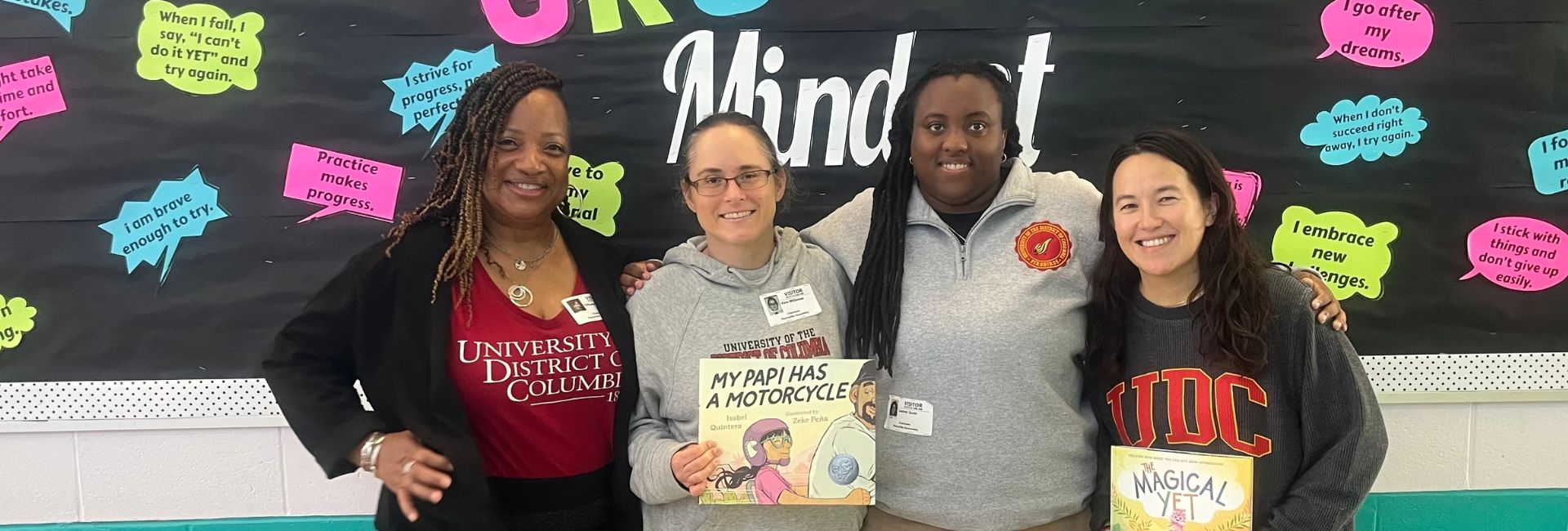Program Overview
Master of Science in Speech-Language Pathology
Apply to earn your Master of Science in Speech-Language Pathology degree from the University of the District of Columbia today!
For decades, our program has been accredited by the Council on Academic Accreditation in Audiology and Speech-Language Pathology (CAA) of the American Speech-Language-Hearing Association (ASHA), served as the first accredited training program at a Historically Black College or University, and was even designated a Center of Excellence by its University of the District of Columbia peers. With a proven foundation and access to academic resources like skilled faculty and small class sizes (15-20 on average), a degree from UDC is your first step toward success.
For years, we have prepared clinicians to serve children and adults alike across the communication disorders spectrum, with a defined emphasis on the sociocultural and sociolinguistic impacts on service delivery. During that time, not only did we receive the 2018 Center of Excellence award, but we are proud to have produced graduates from our program who have consistently achieved high PRAXIS pass rates and employment rates and who continue to reflect our values, goals and mission through their services in the field.

At UDC, it's important to us that you learn in a traditional classroom setting, as well as through experimental, hands-on experiences. By being enrolled in the Clinical Practicum, you will participate in a variety of activities focused on the development of your skills in areas like assessment, diagnosis, and the treatment of disorders of communication across both child and adult clients.
Clinical Practicum is a supervised clinical experience whereby students work with clients applying theories and methods learned in academic and clinical courses under the direct supervision of our licensed clinical faculty. Practicum takes place in various settings, including the UDC Speech and Hearing Clinic, hospitals, schools, clinics, rehabilitation centers, nursing homes and private practices. This exposure helps students understand the different contexts in which SLP services are provided. Clinical practicum is a standard practice required by all SLP programs.
Within the Clinic Practicum curriculum you will find five different training components, each of which will require a high level of performance and mastery of the competencies designated to it in order to progress to the next step.
The Speech Pathology program and UDC's Speech and Hearing Clinic also provide a variety of services for both children and adults with communication-related needs in the DC Metropolitan area. Not only are our services free, but they will also be a part of your clinical training in the program and a commitment to our community.
We even provide speech, language, cognitive, and hearing screenings and comprehensive audiological and speech-language evaluations on the academic semester schedule (Monday-Friday, 9 a.m. - 5 p.m.) to support the identification of communication disorders, in addition to providing intervention services to address all areas of communication, including:
- articulation/phonology
- voice
- stuttering
- oral language
- written language
- swallowing disorders
To achieve certification by the American Speech-Language-Hearing Association (ASHA), and ultimately earn your master's degree in Speech-Language Pathology, you will be required to complete supervised clinical hours and observation hours. All clinical experiences are supervised by ASHA certification holders in good standing.
Note: The Clinical Practicum experiences are hierarchically arranged. All current legal mandates for service provision and the ASHA's Code of Ethics will be provided to you via clinical didactics sessions.







